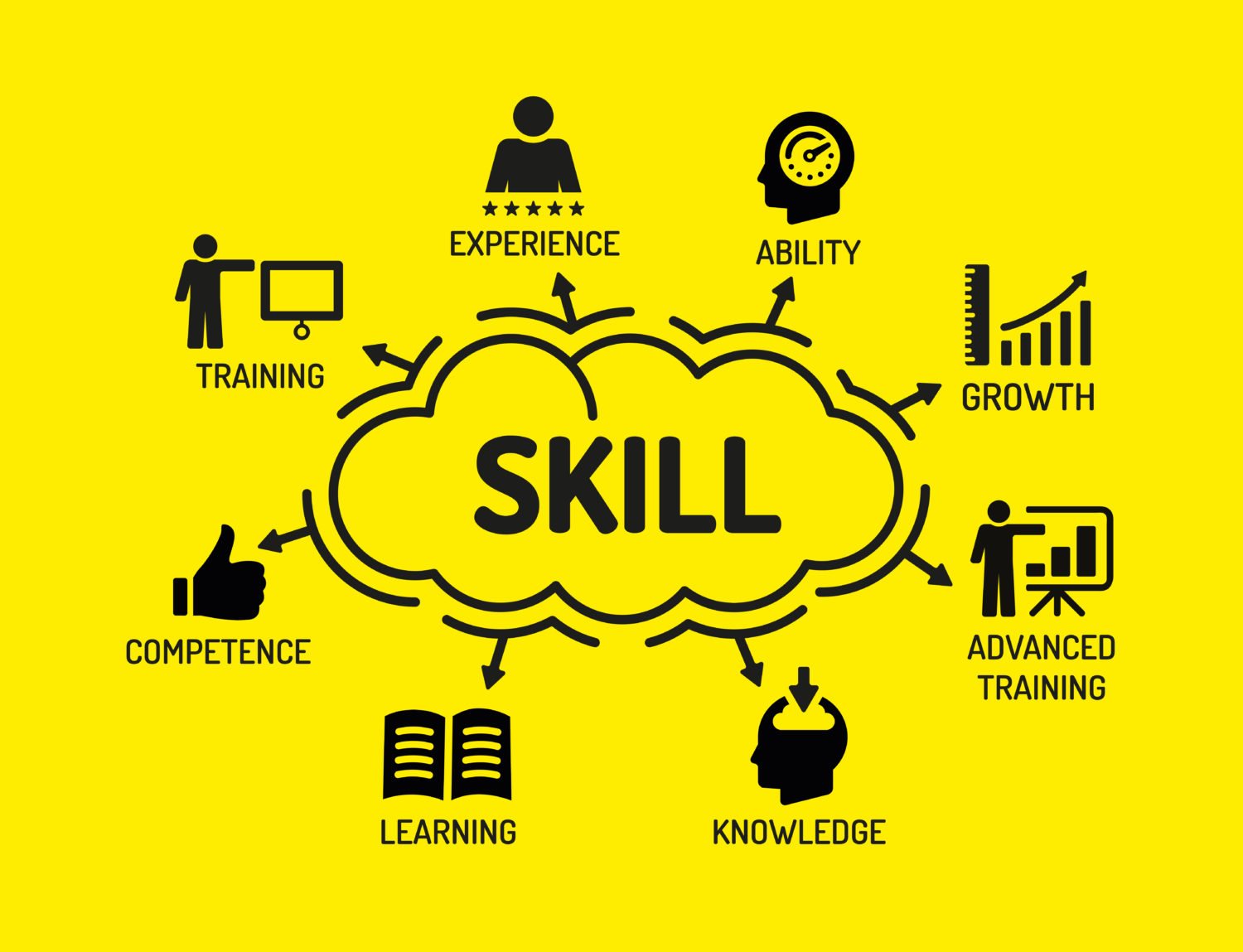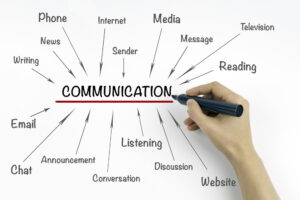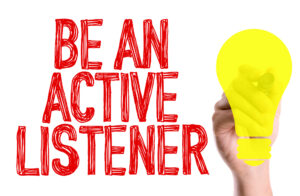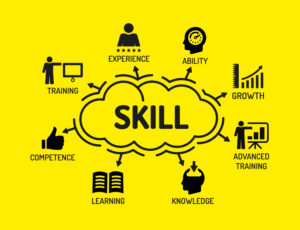
What personal skills do you need working in sport?
Simon Rea is a Lecturer in Sport and Fitness for The Open University and Senior Fellow at the Higher Education Academy. He interviewed 20 people who work in sport or sport-related careers about how they got to their current positions, what their work entailed and most importantly what skills they needed to be effective in their roles.
When working in sport and fitness roles the most important thing is being able to develop and maintain relationships, because once you have a relationship you can start to gain the trust of other people. Sports analyst, Chris Barry, describes how he needs to have strong relationships within his multidisciplinary sports science team so that when he speaks what he says makes an impact. He suggests that the relationship is the ‘glue’ that binds what he says to how it is received. Physiotherapist, Laura Heathcote, describes how building relationships with coaches is important for the times when she needs to influence a situation or when she is suggesting a specific course of action for an athlete. She also says that the relationship with her athletes is crucial to ensuring that they complete their rehabilitation programmes because if they don’t trust you then they won’t do it. Sport and exercise psychologist, Sarah Murray says a similar thing that if you get the relationship part right with other people then you can start talking to them about the science part and they will take the information on board. Football coach, Richard Horner, explains how without a strong relationship you will never get to a point where you can address the aspects of an athlete’s performance that you need to, or have the difficult conversations that may be required. In the tough world of sports journalism Adam Leitch describes how relationships are important so that your contacts, football managers and players, will talk to you and divulge information. This has to be balanced against doing your job well and presenting information that may not always be in those people’s interests.
These reasons show the importance of being able to develop relationships so that people trust you and then you can start influencing the other person and getting them to take on board what you are saying to them. A key sign that you have an effective relationship is when other people come to you to ask for your opinion or advice.
Exercise physiologist, Emma Ross, describes the key to influencing performance as knowing when to step forward and knowing when to sit back and keep quiet, even when you can see things are going wrong. Building on this, two of the most important things when working with and influencing other people are:
What you say, how you say it and when you say it.
What you do, how you do it and when you do it.
These may look to be simple enough statements but because everyone is an individual with different personalities and because every situation is different you will continually have to be able to adapt what you say and how you act. To get what you say and what you do right (in as many situations as you can) you will need a whole raft of other skills.
In order to be able to develop relationships effectively and influence other people you will also need varying degrees of the following personal skills:
- Self-awareness
- Communication
- Listening
- Empathy
- Judgement
- Emotional intelligence
- Creativity/innovation
- Adaptability
Every exchange you have with another person, every time you act and speak will be influenced by these skills along with your knowledge and previous experiences. These personal skills warrant individual attention so we will look at each one individually before looking at how they can be developed.
Self-awareness
Self-awareness is described by Kyndt and Rowell (2012) as the ability to understand your own values, personality, emotions and motives. This will enable you to understand the impact of what you do and say on other people. Kyndt and Rowell (2012) stress that increased self-awareness helps you to manage your emotions and behaviours but also to understand other people better and have empathy with them. If we can understand other people, and their experiences, then this in turn helps us to communicate more effectively with them and develop better relationships. In turn, low self-awareness results in a gap between how you see yourself, what you say and do, and how other people see you and interpret your words and actions. You can see how this would impact negatively on the relationships you develop, and the trust other people will have in you.
Communication
 Communication is described by sports analyst, Chris Barry, as how you deliver information. But there is also an element of how you receive information. He finds that communication is central to his role of working with coaches, as the coach will ask for something specific to be analysed and he needs to ensure they are explicit in their request, so he fully understands it. If he produces the wrong information then it will damage their relationship and waste everyone’s time. Inferring things or making assumptions can be major blocks to communication as these inferences or assumptions may not be correct. Chris makes the important point that people will communicate in different ways and that you need to be creative when sending your message so that it lands with impact.
Communication is described by sports analyst, Chris Barry, as how you deliver information. But there is also an element of how you receive information. He finds that communication is central to his role of working with coaches, as the coach will ask for something specific to be analysed and he needs to ensure they are explicit in their request, so he fully understands it. If he produces the wrong information then it will damage their relationship and waste everyone’s time. Inferring things or making assumptions can be major blocks to communication as these inferences or assumptions may not be correct. Chris makes the important point that people will communicate in different ways and that you need to be creative when sending your message so that it lands with impact.
Strength and conditioning coach, Will Abbott, discusses the importance of being able to communicate at different levels, or to people with different levels of maturity and education. In his role he may deliver information to football coaches, some who may have sports science or coaching degrees, and some who may not. He may talk differently to medical staff than to coaches and even the players when discussing their injuries. Will works with different age groups of players from under-9s up to under-23s and there is a huge difference in the language, tone and pace needed to communicate with these groups. Performance nutritionist, Emma Gardner explains that her biggest challenge is putting the amazing knowledge that she has to athletes in a meaningful way so that they can understand it, or else her work will have no impact on their nutritional strategies.
Outdoor pursuits instructor, Grace Kelly, has found that she has to make major adaptations in her communication style so that she can understand other people and so that they can understand her. In her role, effective communication is central to the safety of her customers. For example, there are challenges in taking hearing impaired students canoeing and ensuring that she is always positioned so that her face can be seen, thus allowing students to lip read. She adapts her language for visually impaired students by using more descriptive language to develop images for them.
Communication is about choosing your words carefully so that other people understand them but there are other factors that affect their impact. Our body language, eye contact, facial expressions and gestures all have an impact on how our words are received by another person. If we are not fully sure that what we are saying is correct, or we are actually lying, then we tend to have closed body language or even hide our mouth behind our hand. Our facial expressions can show any doubt we have, and our gestures can emphasise or weaken a point. Think about the impact of shrugging while you are saying something. Paralinguistics relates to aspects of speech such as tone, volume and rhythm and they can affect the meaning of what we say. We can make something sound authentic, sarcastic or even stupid by changing the tone of our delivery.
The quality of your communication can be assessed by the response it produces and if that response is positive and the one that you wanted then you are communicating effectively. If the response or outcome is different then you will need to adapt your communication style for the person receiving it.
Listening skills
 At the Supporting Champions Conference 2019 the message that came up most frequently was about listening and really listening! Listening is much harder than talking and you will find that most people prefer to talk. Listening involves more than just allowing people to talk, as to listen you need to be fully present and concentrate on what the other person is saying. If you are thinking about what you are going to say next or are developing opinions about the other person then it is likely that you are not listening fully.
At the Supporting Champions Conference 2019 the message that came up most frequently was about listening and really listening! Listening is much harder than talking and you will find that most people prefer to talk. Listening involves more than just allowing people to talk, as to listen you need to be fully present and concentrate on what the other person is saying. If you are thinking about what you are going to say next or are developing opinions about the other person then it is likely that you are not listening fully.
Interestingly, two people I interviewed stated that while they had introverted personality types the benefit of this was that they were good listeners. Personal trainer, Ronique Redelinghuys, says that being an introvert helps her to be good at listening and remembering things about other people. So she can talk less and take the focus off herself she asks people questions, and as people often like to talk she can find out a lot about them. This in turn helps her to understand them and feel more comfortable with them. This can only help to develop working relationships.
Exercise physiologist, Luke Gupta, says that listening is a strength of his and this is valuable in a team environment because you won’t miss things that other people in the team may miss. By listening to people it helps him to understand their concerns and then deliver an appropriate solution. He explains that people who listen can be perceived as being quiet, or not being seen as team players, and in teams it usually extraverted people that flourish.
To practice becoming a better listener you need to use open questions that invite the other person to talk. Once they have finished talking you can show you have been listening by summarising the main points of what they said back to them (Supporting Champions, 2019). This can help to develop the relationship because it makes people feel like they are being heard and understood and as a result being taken seriously.
Empathy
Empathy is about understanding another’s experiences and the challenges that they face. Empathy is essential because the people that you work with will have different thoughts and feelings from you, they may come from different backgrounds and have differing abilities and experiences. There can be a tendency to give people solutions based on your own preferences and experiences and expect them to enjoy them and benefit from them. This can occur in fitness training environments where we may impose the exercises that we like on other people or suggest nutritional plans that we have used and expect them to be successful.
Empathy becomes particularly important when dealing with people whose experiences that are completely different to ours. For example, Grace Kelly, says that she deals with students from inner city areas who come to the countryside to abseil and rock climb in outdoor environments that are totally alien to them. We have to understand that they may be scared or wary about doing these activities that we are comfortable with.
Empathy can be developed by asking the other person questions about their thoughts and feelings and their experiences and processing their answers so that you can appreciate their fears and then come to solutions that work for them.
Judgement
Judgement is about the ‘when’ part of what you say, how you say it and when you say it. It is central to the success or failure of your words or actions. Saying something at the wrong time or acting inappropriately at the wrong moment can have devastating consequences.
Judgement is heavily reliant on emotional intelligence and being able to read situations or assess the mood of a room or environment and then deciding whether it is the right time for you to step forwards or hold back.
Emotional intelligence
Emotional intelligence has become a buzz word in working environments but has also come under criticism with some academics questioning its validity. However, the concept of emotional intelligence is useful to us when considering personal skills. Emotional intelligence refers to how we recognise, monitor and manage our own feelings as well as how we respond to other people’s emotions (Kyndt and Rowell, 2012). Emotional intelligence is based on the work of Daniel Goleman (1996) and in his book Emotional Intelligence: why it can matter more than IQ he explains how people of moderate intelligence may achieve more in the workplace than those with higher intelligence levels. Goleman (1996) argues that this may be due to their more developed emotional intelligence which is shown in their abilities such as self-control, persistence and self-motivation. People with high levels of emotional intelligence are able to control their emotions under pressure, read and respond to other people’s feelings, show empathy and most importantly, to handle relationships smoothly.
One of the attractions of sport is that it is emotional and as it is characterised by winning and losing it can be responsible for emotional highs and lows. This is very well explained by strength and conditioning coach, Will Abbott, who works for a Premiership football team:
“Your ability to manage your emotions is very important. There are going to be bad days when the club loses games of football and there will be fantastic days when you win big football matches. It is important to not become too emotionally involved in the little things that affect you doing your job to the best of your ability, like getting into an argument or focusing on the negatives and letting that affect your performance. If you have played sport yourself, you know how emotions can affect you and it’s the same if you are a member of staff. If your team loses a game it is very easy to get caught up in the emotion but it’s important to see the bigger picture and focus on the long term.”
Working with people who are going through emotional highs and lows will require a specific set of skills other than knowledge and intelligence.
Goleman (1996) presents evidence that people who are skilled at controlling their emotions and can read and deal with other people’s emotions are at an advantage in all domains of life. Whether it is in personal and professional relationships, or when you have to be aware of the unspoken rules in politics. We could add to this when working in the complex, unpredictable world of sport.
Creativity/Innovation
 Creativity and innovation are required when you have to formulate solutions to unfamiliar problems. Sport and physical activity manager, Vicki Galvin, explains how she often has to be innovative and ‘think outside the box’ to find solutions to problems. This is due to having to work with different departments who have differing agendas but are all interested in providing a better service. Physiotherapist, Laura Heathcote, finds that she has to be creative to find solutions when presented with injuries in her disabled athletes. She says:
Creativity and innovation are required when you have to formulate solutions to unfamiliar problems. Sport and physical activity manager, Vicki Galvin, explains how she often has to be innovative and ‘think outside the box’ to find solutions to problems. This is due to having to work with different departments who have differing agendas but are all interested in providing a better service. Physiotherapist, Laura Heathcote, finds that she has to be creative to find solutions when presented with injuries in her disabled athletes. She says:
Being creative is really crucial because for us it is about thinking about that athlete in front of you and how you might rehab them. We might see the same injury, but it is in two athletes with different disabilities and they will present completely differently. The best rehab exercises for us are not written in a book or found online. Sometimes they may not be able to get in a certain position or do an exercise so the ability to be creative and come up with individual solutions is crucial. Also, athletes get bored if you give them the same exercises all the time. They challenge us as much as we challenge them to be creative.
A person who lacks creativity will end up applying the same solution to different problems and find that their success is limited. Once again intelligence and creativity are not necessarily linked. De Bono (2006) argues that intelligence limits creativity because an intelligent person will come up with one solution and then be able to defend it because they are good at arguing and reasoning. Creativity relies on being able to develop a range of potential solutions and then decide which one is best (Cottrell, 2015). Creativity takes time and it can be stifled by the process of sitting down and having to come up with ideas, as can happen in meetings. Anxiety and stress are barriers to creativity, but the brain does become creative when it is stimulated and engaged (Cottrell, 2015).
Adaptability
Adaptability is a skill that was mentioned by nearly all the people I interviewed. We have already talked about being adaptable in the way that you communicate to get the outcomes you want but we need to be adaptable in all situations. Personal trainer, Richard Marfell explains how he has to adapt to the restrictions of home training. He is restricted by the amount of equipment he can get in his car, the type of equipment he can use (treadmills and resistance machines are not portable), the amount of space people have in their houses and the impact of travelling. He highlights some unforeseen issues that there may be, such as children and pets joining in training sessions. He takes the attitude that you need to embrace all these factors rather than resist them and adapt your training so that everyone is happy. He also makes the point that you have to gauge how your client is feeling on any one day and then respond appropriately. You can prepare the most varied, exciting programme but if they have had a bad night’s sleep or a bad day then they may not be in the right mood for a training session.
Adaptability is vital in educational environments as coach educator, Richard Horner, says that he changes his teaching every single day to meet the needs of the coaches he is training. Coaches themselves have to be adaptable to meet the needs of the people they are delivering sessions to. This is echoed by football manager, Anthony Limbrick, as he says that he learnt to be adaptable by coaching in many different environments. He has coached four-year olds, troubled teenagers, men’s and women’s football teams, as well as many different sports. All these sessions have made him adaptable as a coach, so nothing fazes him, such as when his session is disrupted by another coach taking some of the players out of his session.
Having experience of many different type of coaching or instructing sessions, having as many alternatives and options as you can, and of course being creative and innovative, are ways that you can ensure you are as adaptable as possible.
These are some of the key personal skills that you will need to work effectively in sport and fitness. Different authors will focus on different skills for employability. There were other themes that came out of my research, such as the importance of being resilient and being able to overcome setbacks, the ability to work as part of a team and the importance of being able to manage your time effectively.
Simon Rea is the author of Careers in Sports Science that was published in 2019.
Available from www.simonreasportscience.co.uk
References
Cottrell, S. (2015) Skills for Success: Personal Development and Employability. London, Palgrave.
De Bono, E. (2006) Teach Yourself to Think. London, Penguin.
Goleman, D. P. (1996) Emotional Intelligence: Why It Can Matter More Than IQ for Character, Health and Lifelong Achievement, New York, Bantam Books.
Kyndt, T. and Rowell S. (2012) Achieving Excellence in High Performance Sport. London, Bloomsbury
Supporting Champions (2019) ‘Top 10 take home messages from the Supporting Champions Conference’. Available at: https://www.supportingchampions.co.uk/ (Accessed 20th April 2019).

